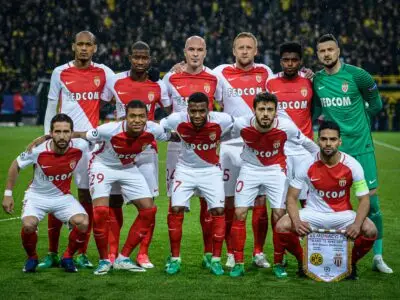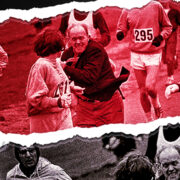Few stories in the world of football capture the essence of perseverance and raw talent like that of Ahmed Musa.
From the dusty streets of Jos, where he first kicked a ball, to the grandest stage in football, Musa’s journey is one of resilience, passion, and an unbreakable spirit.
When Argentina faced Nigeria in the 2014 World Cup, all eyes were on Lionel Messi. But on that night in Porto Alegre, a young Nigerian winger stole the show.
I watched in awe as he ripped through Argentina’s defense at the 2014 World Cup, trading goals with Lionel Messi like it was just another day at the office.
But his journey to that moment wasn’t easy—it was a story of grit, speed, and an unshakable belief in himself.
Early Life in Jos
If you’ve ever been to Jos, Nigeria, you would understand why it produces some of the country’s finest footballers. Nestled on the Plateau, with its cool climate and open fields, Jos is Nigeria’s own version of a football city—much like Barcelona, London, or Milan.
It’s a place where kids grow up with a ball at their feet, playing in dusty streets, on makeshift pitches, and anywhere there’s space.
I imagine Ahmed Musa, a young boy with boundless energy, weaving through the narrow streets of Jos, dribbling past obstacles—some real, some symbolic.
The city, with its mix of ethnic groups and religious backgrounds, has a history of tensions and conflicts, and for many young kids, football was more than just a game—it was an escape, a unifier, and sometimes, the only thing that made sense.
Musa’s story is one of resilience. Born into a modest home, he understood struggle early on.
There were no guarantees, no smooth paths—only the promise that hard work and raw talent could carve a way out. Unlike children in more privileged environments, he didn’t grow up with world-class academies or structured youth setups.
His training ground was the streets, his biggest opponents were hunger and hardship, and his inspiration came from the people around him—players who had made it out, like Mikel Obi, Obinna Nsofor, and Celestine Babayaro.
From GBS Football Academy to Kano Pillars: Nigeria’s Next Big Thing
Musa’s big break came when he joined the GBS Football Academy, a platform with a track record of nurturing young Nigerian talents. It was here that he refined his skills, gained exposure, and showed glimpses of the player he would become.
But academy football is one thing—playing in the Nigerian Professional Football League (NPFL) is another beast entirely.
At just 17 years old, Musa was signed by Kano Pillars, one of Nigeria’s most respected clubs. This wasn’t just a move to a new team; it was a trial by fire.
The NPFL is known for its physicality, intense crowds, and unpredictable pitches, but Musa embraced the challenge. He didn’t just survive—he thrived. In the 2009/10 season, he became the league’s top scorer with 18 goals, a record at the time.
Defenders couldn’t handle his explosive pace and fearless dribbling, and soon, scouts from Europe were taking notice.
VVV—Venlo: Adapting to Dutch Football
By 2010, Musa was ready for the next step. At just 18 years old, he made the bold move to VVV—Venlo, a Dutch club known for developing young talents.
But if Nigeria’s league was physical, European football was technical, structured, and tactically demanding. Adapting wasn’t easy.
For the first few months, Musa struggled. The Dutch game demanded better positional awareness, decision—making, and tactical discipline—things that weren’t emphasized in Nigerian football.
He also had to adjust to a new culture, new language, and colder climate. But if there’s one thing that defined his career, it was his resilience.
By the time he fully settled, Musa was a nightmare for defenders. His speed made him a constant threat on the counterattack, and his ability to drift past players earned him the nickname “The Nigerian Rocket.”
He scored 8 goals in 37 appearances, and by 2012, his performances had attracted the attention of bigger clubs.
Ahmed Musa Shines for CSKA Moscow
In January 2012, Ahmed Musa signed for CSKA Moscow, one of Russia’s biggest clubs. If moving to the Netherlands was a challenge, adapting to Russian football in sub-zero temperatures was another level entirely. But again, Musa didn’t let the difficulties slow him down.
Over the next four and a half seasons, Musa became a fan favorite in Moscow.
He won three Russian Premier League titles, multiple domestic cups, and played in the UEFA Champions League. His pace, work ethic, and versatility made him one of CSKA’s most important players, and by 2015, he was the team’s top scorer.
Chasing the Premier League Dream: The Leicester City Experience
By 2016, Musa had reached a crossroads. He had conquered Russian football, but he wanted a bigger challenge. That opportunity came when Leicester City, fresh off their fairytale Premier League title win, signed him for a then-club-record fee of £16.6 million.
Expectations were high, given Musa’s blistering speed, international experience, and Champions League pedigree, but things didn’t go as planned.
The intensity of the Premier League, combined with Leicester’s struggles that season, made it hard for him to settle.
Despite moments of brilliance—like his stunning solo goal against Barcelona in a pre-season friendly and a brace against Everton in the FA Cup—Musa never quite cemented his place in the starting XI.
Playing for Nigeria
Ahmed Musa’s journey with the Super Eagles began in 2010 when he earned his first call-up at just 17 years old. His debut came in an Africa Cup of Nations (AFCON) qualifier against Madagascar, where his blistering pace and fearlessness hinted at the star he would become.
Musa quickly cemented his place in the team, gaining experience and confidence with each game.
His breakthrough moment came on the world’s biggest stage—the 2014 FIFA World Cup in Brazil. Facing a Lionel Messi-led Argentina, Nigeria needed something special, and Musa delivered. He scored twice, making history as the first Nigerian to score a World Cup brace.
Though Nigeria lost 3-2, Musa’s dazzling performance earned global recognition.
Four years later, at the 2018 World Cup in Russia, he proved his class once again.
With Nigeria in a must-win game against Iceland, Ahmed Musa stepped up with a stunning brace, including a goal of the tournament contender where he controlled the ball masterfully before slotting past the goalkeeper. Those two goals secured a crucial 2-0 victory, keeping Nigeria’s hopes alive.
Musa’s biggest triumph with Nigeria came in 2013 when the Super Eagles lifted the Africa Cup of Nations (AFCON). Under coach Stephen Keshi, the team defied expectations, and Musa played a key role throughout the tournament. Nigeria defeated Burkina Faso 1-0 in the final, reclaiming the continental crown after 19 years.
In the years that followed, Ahmed Musa grew into a leader. By 2019, he was Nigeria’s captain, guiding a new generation of players. His experience, humility, and passion for the game made him an inspirational figure both on and off the pitch.
Return to Kano Pillars
Following his brief times at Fatih Karagümrük and Sivasspor, which, in my opinion, were disappointing, Musa made a heartfelt return to Kano Pillars, rejoining the club on a short-term contract for the 2024/25 Nigeria Premier Football League season.
This move marked his third stint with the team, reflecting his enduring commitment to Nigerian football and his desire to give back to the community that nurtured his early career.
Musa’s impact was immediate and profound. In his first match back, he showcased his exceptional talent by scoring both goals in a 2-0 victory over Sunshine Stars, with his first goal coming just five minutes into the game.
Over the next seven games, he continued to demonstrate his prowess, accumulating four goals and two assists, and playing a pivotal role in Kano Pillars’ ascent in the league standings.
His return to Kano Pillars in 2021 and again in 2024 was not just about football—it was about giving back, staying sharp, and showing younger players that success is never a straight path.
Challenges and Resilience: The True Test of a Champion
Ahmed Musa’s career has been shaped by challenges that tested his resilience. From injuries to criticism, from struggling in club football to proving doubters wrong, Musa’s journey is proof that greatness is not just about talent—it’s about perseverance.
We know football can be cruel sometimes, and Musa has had his share of injury struggles and criticism. Throughout his career, there were times when his body betrayed him, keeping him on the sidelines just when he was needed most.
Early in his time at Sivasspor, he suffered an injury that limited his impact and eventually led to an early contract termination. But Musa never let setbacks define him—he always found a way to come back stronger.
Coming from a country as passionate about football as Nigeria, I need not over-flog the place of criticism in football—it is simply inevitable.
Ahmed Musa has faced tough moments where fans and pundits questioned his performances. His time at Leicester City in the Premier League was a particular low point.
After that record-breaking move, expectations were sky-high, but he struggled to adapt to English football, scoring just five goals in two seasons. He was loaned back to CSKA Moscow, where he regained his confidence, but the Leicester dream had faded.
Coupled with his poor performance at Fatih Karagümrük, I felt his career was over. However, Musa’s ability to bounce back from criticism, dust himself off, and keep moving forward has been one of the most inspiring aspects of his career.
Impact Beyond the Pitch
In a world where many athletes focus solely on personal success, Musa has used his platform to uplift others. From philanthropy and community development to national recognition and mentorship, he embodies what it means to give back.
Over the years, he has provided financial aid to struggling families, paid medical bills for the sick, and supported young people in their education. His most notable project is the Ahmed Musa Sports and Educational Centre, a school he built in Jos to give children access to quality education.
For Musa, football is important, but education is the key to breaking the cycle of poverty. By investing in young minds, he is ensuring that the next generation has opportunities beyond sports.
More so, Ahmed Musa’s return to Kano Pillars, both in 2021 and 2024, was about more than just playing—it was about setting an example. He wanted to inspire young players, bring attention to the local league, and show that homegrown talent deserves respect.
Beyond playing, he has supported struggling Nigerian clubs financially and provided training equipment to academies, nurturing the next generation of footballers. He understands that for Nigeria to remain a football powerhouse, investments must be made at the grassroots level.
Ahmed Musa is a Nigerian Icon
Musa’s contributions to football and society did not go unnoticed. The Nigerian government has honored him with two of the highest civilian awards:
- Member of the Order of the Niger (MON) – awarded after his historic performances at the 2014 World Cup, where he became the first Nigerian to score twice in a single World Cup match.
- Officer of the Order of the Niger (OON) – recognizing his continued impact on Nigerian football and his dedication to philanthropy.
These awards place him among Nigeria’s most respected figures, not just in sports but in national development.
Musa’s story is one of resilience, humility, and generosity. From playing barefoot on the streets of Jos to leading Nigeria at the World Cup, he has proven that success is possible with hard work and determination.
He is a trailblazer for Nigerian and African Football, inspiring the new generation of Nigerian strikers across Europe. His journey is more than just about football—it’s a story of resilience, leadership, and an unbreakable bond with his country.
Who wrote this?
Desmond is a lawyer whose first love is the young boy from Rosario. He loves writing about the legal profession and sports.























